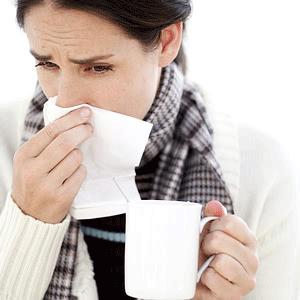 Staying healthy during the winter can be tough. The cold, wet days encourage the growth of disease-causing bacteria and viruses, which are then spread easily while people remain cooped up inside, without much fresh air. The early sunsets and rainy days can also cause winter depression, which is common in people who lack vitamin D, a substance which our bodies produce with the help of sunlight. Here are a few tips to stay healthy this season:
Staying healthy during the winter can be tough. The cold, wet days encourage the growth of disease-causing bacteria and viruses, which are then spread easily while people remain cooped up inside, without much fresh air. The early sunsets and rainy days can also cause winter depression, which is common in people who lack vitamin D, a substance which our bodies produce with the help of sunlight. Here are a few tips to stay healthy this season:
1. Consult your doctor about the flu shot. Perhaps you should just protect yourself from this inconvenient illness before the season really kicks in.
2. Make sure to wash your hands regularly. Don’t put your hands near your face throughout the day unless you are sure they are clean. Viruses and bacteria can live for hours on doorknobs, sink handles, pencils and more. You may want to consider carrying a hand sanitizer in your purse. Encourage your children to do the same.
3. Do not share cups or other utensils with others, even if they seem healthy. Most illnesses are contagious twenty four hours before the first symptoms take effect.
4. Keep warm. The cold, humid conditions in your body which are caused by the weather are ideal for unhealthy bacteria. Make sure to keep your chest warm and dry at all times to avoid sicknesses such as bronchitis, pneumonia, the common cold and even the flu. A scarf can also help you avoid these illnesses.
5. Make sure not to take antibiotics without direct permission from a doctor. You may assume that you have a bacterial illness such as strep throat, but if you don’t, taking antibiotics will make it worse. The medication will destroy other types of bacteria in your body, which as a result will strengthen the virus or fungus that is causing your disease. Your body contains thousands of microorganisms, and that is how it should be. These help your metabolism, immune system and more.
6. Drink orange juice or other juices containing vitamin C. This vitamin helps strengthen your immune system.
7. Exercise. The cold weather often discourages people from doing any sort of physical activity during the winter. This is very bad for your body. Exercise can increase circulation, improve the mood and boost the immune system. Of course, it can also help you stay in shape so you’ll be ready for the beach when the summer hits.

 Staying healthy during the winter can be tough. The cold, wet days encourage the growth of disease-causing bacteria and viruses, which are then spread easily while people remain cooped up inside, without much fresh air. The early sunsets and rainy days can also cause winter depression, which is common in people who lack vitamin D, a substance which our bodies produce with the help of sunlight. Here are a few tips to stay healthy this season:
Staying healthy during the winter can be tough. The cold, wet days encourage the growth of disease-causing bacteria and viruses, which are then spread easily while people remain cooped up inside, without much fresh air. The early sunsets and rainy days can also cause winter depression, which is common in people who lack vitamin D, a substance which our bodies produce with the help of sunlight. Here are a few tips to stay healthy this season: